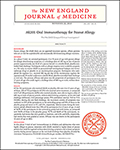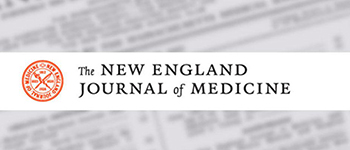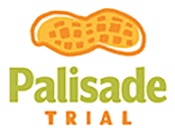 Tara F. Carr, MD, as a member of the PALISADE Group of Clinical Investigators, co-authored a paper recently published in the New England Journal of Medicine that found in a clinical trial
Tara F. Carr, MD, as a member of the PALISADE Group of Clinical Investigators, co-authored a paper recently published in the New England Journal of Medicine that found in a clinical trial  that oral immunotherapy in children and adolescents could be effective in reducing allergic reactions to peanuts.
that oral immunotherapy in children and adolescents could be effective in reducing allergic reactions to peanuts.
Banner – University Medical Center Tucson and the University of Arizona Health Sciences Asthma and Airway Disease Research Center participated in the Phase 3 randomized, double-blind, placebo-controlled clinical trial, which was a milestone in showing clinical efficacy of oral peanut immunotherapy for children with peanut allergy. The aim of the study is to desensitize peanut allergy sufferers through limited exposure.
“We did not collect or analyze data separately from the trial, but were delighted to be selected as a clinical trial site for this landmark study—and, for this, we credit our status as a Food Allergy Research and Education (FARE) Clinical Network Center of Excellence,” said Dr. Carr, principal investigator for the trial site at Banner – University Medical Center Tucson.
 “Our success with enrollment of patients and ongoing care was a team effort, facilitated by our research coordinator (Natalia Billias), and supported by our pediatric allergists (Drs. Heather Cassell and Michael Daines), as well as our allergy fellows.”
“Our success with enrollment of patients and ongoing care was a team effort, facilitated by our research coordinator (Natalia Billias), and supported by our pediatric allergists (Drs. Heather Cassell and Michael Daines), as well as our allergy fellows.”
The trial—begun in 2015 and completed this past summer—included 551 highly allergic participants between age 4 and 17 who received AR101, an oral biologic drug designed to protect patients from severe allergic reactions in case they’re accidentally exposed to peanut or peanut by-products and for which the active ingredient is a defatted lightly roasted peanut flour and enzyme-linked immunosorbent assay, or a placebo.
 The article, “AR101 Oral Immunotherapy for Peanut Allergy,” was published in the Nov. 22 edition of the medical journal. It notes peanut allergy among children in the United States and other industrialized countries is rising, usually persists into adulthood and accounts for the majority of deaths due to food allergies. Researchers concluded: “AR101 resulted in higher doses of peanut protein that could be ingested without dose-limiting symptoms and in lower symptom severity during peanut exposure at the exit food challenge than placebo.” (Funded by Aimmune Therapeutics; PALISADE ClinicalTrials.gov number, NCT02635776.)
The article, “AR101 Oral Immunotherapy for Peanut Allergy,” was published in the Nov. 22 edition of the medical journal. It notes peanut allergy among children in the United States and other industrialized countries is rising, usually persists into adulthood and accounts for the majority of deaths due to food allergies. Researchers concluded: “AR101 resulted in higher doses of peanut protein that could be ingested without dose-limiting symptoms and in lower symptom severity during peanut exposure at the exit food challenge than placebo.” (Funded by Aimmune Therapeutics; PALISADE ClinicalTrials.gov number, NCT02635776.)
 The article was accompanied by an editorial in the same issue, “Oral Desensitization to Peanuts,” by Michael R. Perkins, MBBS, DCH, PhD, a pediatric allergist, senior lecturer at the largest pediatric allergy service in Europe at St. Thomas’ Hospital (London, UK), consultant at St. George’s Hospital (London), and co-leader of the EAT Study, a large trial seeking to prevent infants from developing food allergies. That study found that 12-percent defatted peanut flour could induce desensitization in children.
The article was accompanied by an editorial in the same issue, “Oral Desensitization to Peanuts,” by Michael R. Perkins, MBBS, DCH, PhD, a pediatric allergist, senior lecturer at the largest pediatric allergy service in Europe at St. Thomas’ Hospital (London, UK), consultant at St. George’s Hospital (London), and co-leader of the EAT Study, a large trial seeking to prevent infants from developing food allergies. That study found that 12-percent defatted peanut flour could induce desensitization in children.
Dr. Perkins, though, points out that immunotherapy is not a panacea due to side effects, cost of some treatment options and the need to continue with the therapy or its effects wear off. This perspective was mirrored in a MedPage Today article that appeared as the  PALISADE study results were released.
PALISADE study results were released.
Dr. Carr responded by saying, “Peanut allergy profoundly impacts patients and their families. This is a life-threatening disease that kills children every year through accidental exposures and anaphylaxis. In the food allergy community, while our ideal outcome is a complete and permanent cure, we are encouraged by these rigorous studies and therapeutics that provide an option for mitigating the risk of anaphylaxis for our patients and family members.
“We also acknowledge that this treatment option carries a burden for patients, and is not fully tolerated or effective in all patients. However, for those who tolerate the treatment with AR101 and for whom the desensitization can prevent symptoms due to accidental exposure, this is life changing. We have certainly received this feedback from some of our study participants and their families. Further clinical trials of alternative forms of desensitization, or of combination anti-allergy drugs with AR101, are ongoing or soon to start,” she added.
Dr. Carr pointed out that UA/Banner in Tucson also were chosen to participate in the  Real-World AR101 Market-Supporting Experience Study (RAMSES) in Peanut-Allergic Children, which used the same AR101 therapy but had slightly different selection methods.
Real-World AR101 Market-Supporting Experience Study (RAMSES) in Peanut-Allergic Children, which used the same AR101 therapy but had slightly different selection methods.
“Participants were not required to undergo a double-blind, placebo-controlled food challenge, and instead were selected for risk by blood and skin testing results for peanut allergy. The results from this clinical trial have not yet been published,” said Dr. Carr. The sponsor (Aimmune) has also designed long-term follow-up studies for participants who graduate from the clinical trials, to ensure continuous therapy while awaiting FDA approval, she added.
Going forward, Dr. Carr noted, “We are encouraged by the possibilities afforded by AR101 to help reduce risk of anaphylaxis in patients with food allergy. Next steps will include understanding the mechanisms by which this treatment works, identifying methods for selecting patients most likely to benefit from this treatment, and expanding treatments to patients who have other food allergies, such as to milk, eggs, or tree nuts.”
Dr. Carr is an associate professor of medicine and otolaryngology at the University of Arizona College of Medicine – Tucson, director of the Allergy and Immunobiology Fellowship Program in the Division of Pulmonary, Allergy, Critical Care and Sleep Medicine and director of the Adult Allergy Program at Banner – University Medical Group Tucson. She is also the immediate past president of the Tucson Asthma Society and the Arizona Allergy and Asthma Society.
The PALISADE study’s acronym stands for Peanut Allergy Oral Immunotherapy Study of AR101 for Desensitization in Children and Adults.
EXTRA INFO: Food Allergies & Peanuts
Of the 150-200 people who die in the United States annually from food allergies, it’s estimated 50-60 percent of the deaths are from anaphylactic shock due to peanut allergy. Peanut allergy, the incidence of which doubled between the years of 2002 and 2012 among U.S. children, accounts for the majority of emergency room visits due to food allergies.
The following offers additional information:
- Food Allergy Research & Education (FARE): Facts & Statistics
- National Food Allergy Death Registry
- UC Davis Food Allergy Fact Sheet for Health Professionals
- “U.S. of Allergies: The Cost of Food Allergies in America,” Feb. 27, 2018, Robyn O'Brien
- “Food Allergy in the United States: Recent Trends and Costs,” FAIR Health Inc. White Paper, November 2017
Other recent articles:
■ “NEJM paper buoys Aimmune’s peanut allergy drug prospects” | (FierceBiotech.com) Posted Nov. 19, 2018
■ “Successful Peanut Allergy Clinical Trial Results Published in NEJM” | (UNC School of Medicine) Posted Nov. 19, 2018
■ “NEJM Publishes Highly Positive Study Data on OIT Biologic for Peanut Allergy” | (AllergicLiving.com) Posted Nov. 18, 2018
■ “Aimmune Therapeutics Announces Initiation of Phase 2 Study of AR101 with Adjunctive Dupilumab in Peanut-Allergic Patients” | (SnackSafely.com) Posted Oct. 15, 2018
■ “Phase II Trials of AR101 with Dupilumab for Peanut Allergy to Begin” | (SnackSafely.com) Posted Sept. 27, 2018

